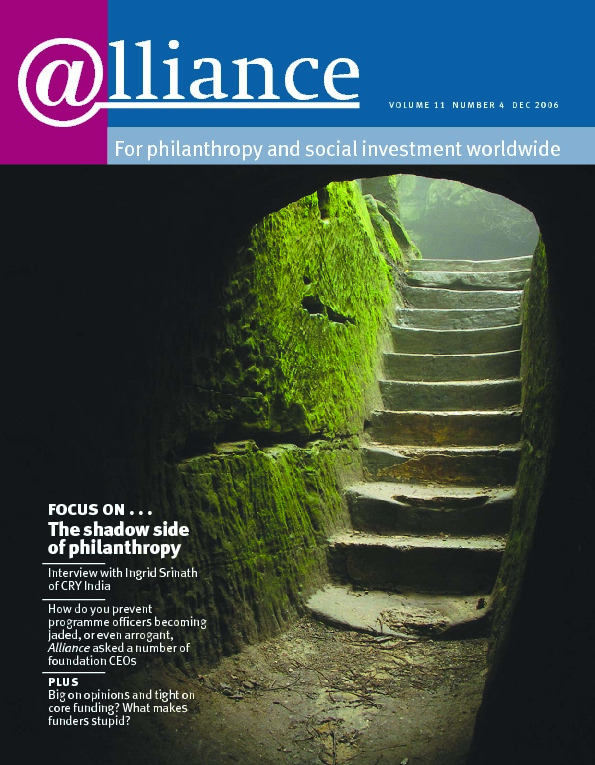How are foundations on both sides of the Atlantic doing when it comes to achieving a gender balance at the highest levels of the organization? A rough survey by Alliance suggests that US foundations are doing much better than their European counterparts.
The USA
According to the Council on Foundations (significantly, the US is also better at keeping track of statistics on this), 18 out of 31 (58 per cent) of its current board of directors are women. Among individual Council members too, a slightly smaller majority (56 per cent) have women CEOs (1,147 female CEOs and 911 male CEOs).
Europe
European Foundation Centre
Among the European Foundation Centre’s (EFC) 173 voting members, 49 have a female Primary Contact (28 per cent). Primary Contacts are mostly the head of the organization. On the Governing Council, 6 out of 30 (20 per cent) members have a woman as Primary Contact.
The Hague Club, an informal group of directors of European foundations, has only 4 women among its 30 members (13 per cent). The Hague Club acts as an informal international platform for the discussion of problems and issues connected with the management of private foundations and the role of philanthropy in society.
EFC Gender Strategy Group
An informal Gender Strategy Group was set up in 2005 by some EFC members who were concerned by the lack of gender balance among EFC members and governing bodies, on EFC conference panels, and so on. Its first meeting was held in July 2005. Numbered among its aims was to encourage the EFC to follow the policy of the European Union and its institutions and adopt a target of at least 40 per cent women on each committee, group or platform. In order to achieve this goal, of course the change must come from inside individual foundations. Having Helena Kennedy as one of two speakers at the EFC conference opening session in Brussels in May 2006 was the first tangible achievement of the group.
The UK
The proportion of women speakers at an acevo (Association of Chief Executives of Voluntary Organizations) conference on Funding the Future (London, 23 November) was 4 out of 15 – some 32 per cent.
A recent report, Raising Our Game, also produced by acevo, finds that 70 per cent of chairs of UK third sector organizations are men.
Proportion of women CEOs in CoF and EFC
CoF members 56%
CoF board 58%
EFC members 29%
EFC Governing Council 20%
Source CoF and EFC.
For more information
http://www.cof.org
http://www.efc.be
For more about the EFC Gender Strategy Group, contact Françoise Pissart at Pissart.f@Kbs-frb.be
Vast majority of third sector CEOs and chairs in UK are white
According to the annual pay survey by the UK’s Association of Chief Executives of Voluntary Organizations (acevo), charities are in danger of losing their credibility because of their record on diversity and governance. Ninety-seven per cent of chief executives and 94 per cent of chairs of third sector organizations are white, says the study, Raising Our Game, and 70 per cent of chairs are men. The most striking disparity in terms of diversity was that only 0.7 per cent of the sample of chief executives surveyed were Asian, compared with the corresponding figure for the entire population of 4 per cent (according to the most recent, 2001 census). For Black and Chinese people the respective figures were 1 per cent (out of 2 per cent overall) and 0.3 per cent (out of 0.4 per cent overall).
Source
ThirdSector, 18 October 2006





Comments (0)